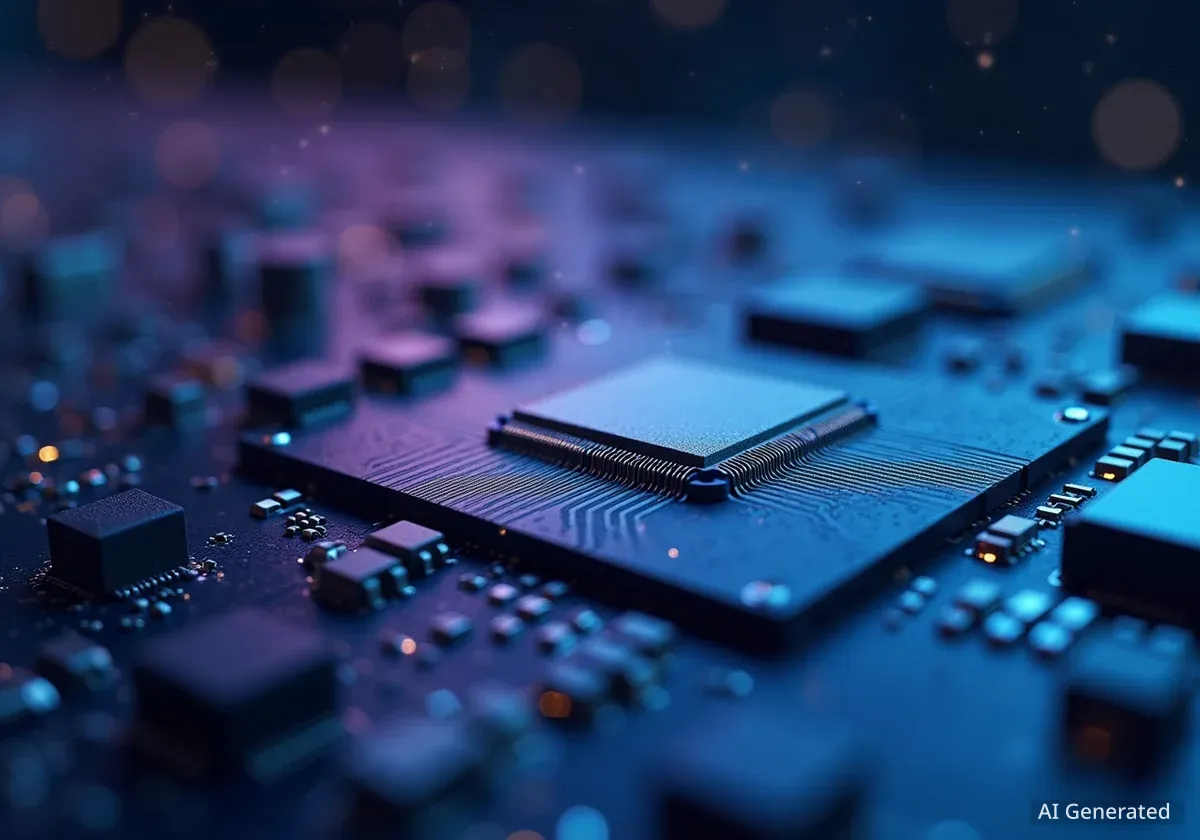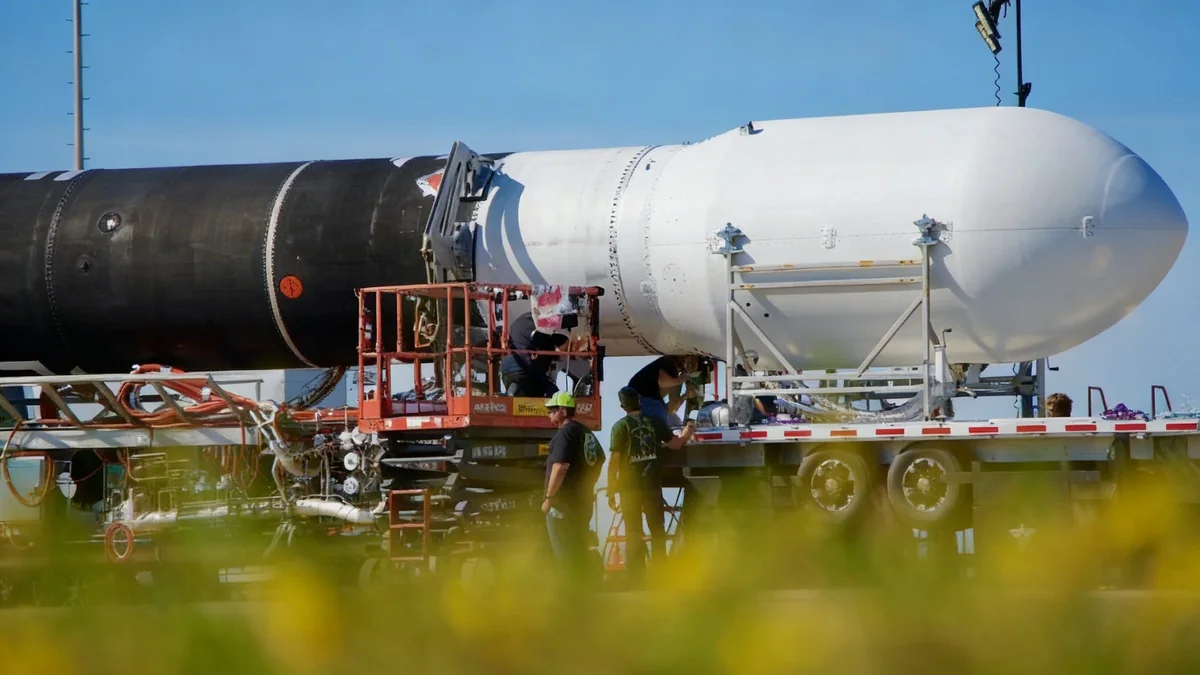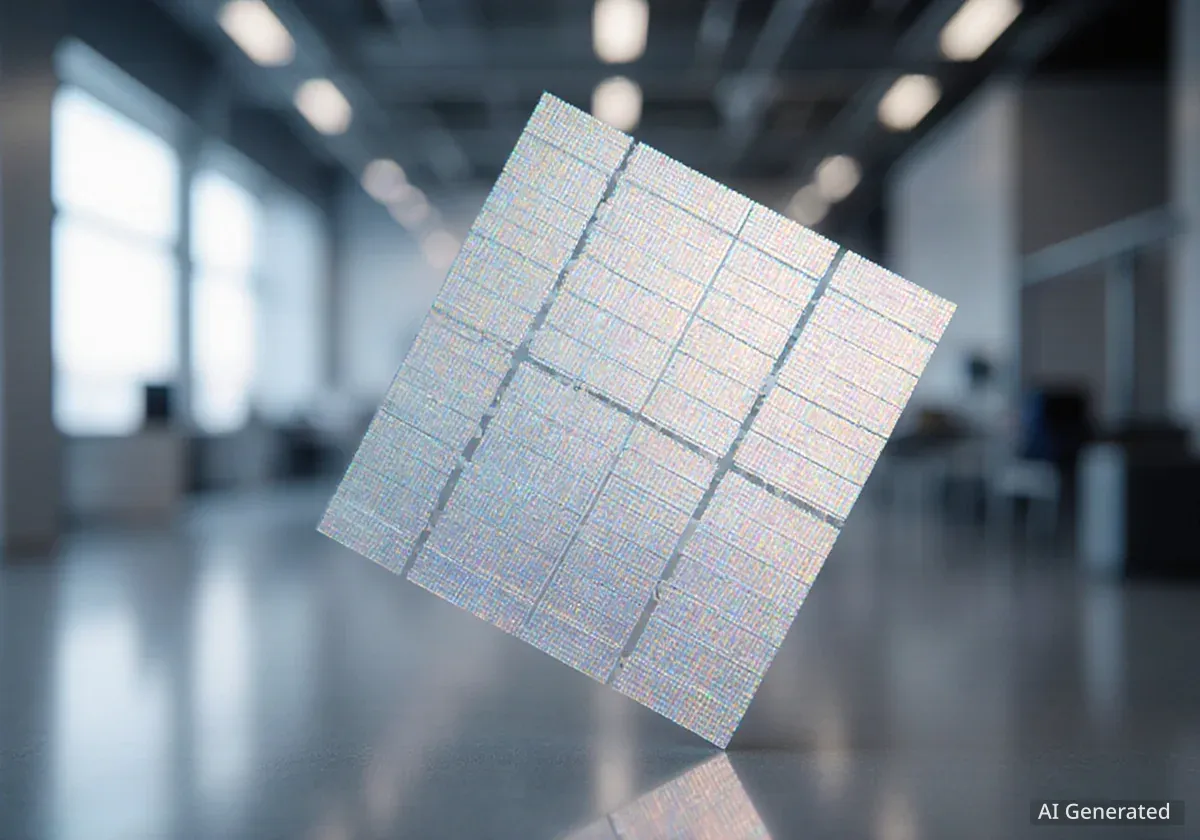UK-based Space Forge and US company United Semiconductors have signed a memorandum of understanding to collaborate on manufacturing advanced semiconductors in orbit. The partnership aims to leverage the unique conditions of microgravity to produce higher-quality materials and establish a commercially viable supply chain for processors made in space.
Key Takeaways
- Space Forge and United Semiconductors have formed a partnership to manufacture semiconductors in space.
- The collaboration focuses on designing processors, fabrication equipment, and advanced materials for wafer production.
- Manufacturing in microgravity is expected to overcome some of the limitations and high costs of Earth-based production.
- The initiative aims to create a resilient and commercially viable semiconductor supply chain based in the United States.
A New Frontier for Semiconductor Production
The production of semiconductors is one of the most complex and sensitive industrial processes on Earth. As electronic components shrink, the demands for precision and purity increase, driving up costs and failure rates. A new partnership between Space Forge and United Semiconductors seeks to move this critical process off-planet.
The two companies have formalized an agreement to jointly develop the technology and processes required for in-space fabrication. Their goal is to create a system that can produce semiconductor wafers in microgravity, which offers significant advantages over terrestrial facilities.
The Challenge of Earth-Based Manufacturing
On Earth, semiconductor fabrication requires ultra-clean rooms to prevent contamination, as even a single dust particle can ruin a silicon wafer. The process involves extreme precision and is susceptible to defects caused by gravity. These factors contribute to high costs and a significant number of non-viable wafers, making it a resource-intensive industry.
Why Manufacture in Microgravity?
The microgravity environment of space offers a potential solution to many of the challenges faced by chip manufacturers. Without the constant pull of gravity, it is possible to grow more perfect crystalline structures, which are the foundation of semiconductor wafers. This can lead to higher-quality, more efficient chips with fewer defects.
United Semiconductors has already begun exploring this potential. The company completed initial tests aboard the International Space Station (ISS) in November and recently sent a second round of experiments on a Cygnus cargo transport mission. These tests are crucial for understanding and refining the processes for in-space manufacturing.
Ongoing Research in Orbit
United Semiconductors' experiments on the ISS are designed to test crystal growth and material processing in a sustained microgravity environment. The results from these tests will directly inform the design of the new equipment being developed with Space Forge.
Defining Roles in the Partnership
The collaboration outlines clear responsibilities for each company. United Semiconductors will focus on designing the specialized equipment for in-space fabrication and will be responsible for quality assurance and testing of the final products.
Space Forge will contribute its expertise in designing and developing the processes and hardware for creating silicon wafers in microgravity. This technology is intended for integration into its ForgeStar satellite platform, a reusable vehicle designed for in-orbit manufacturing and return to Earth.
The ForgeStar Platform
Space Forge's ForgeStar is a key component of this strategy. The first satellite, ForgeStar-1, is currently in orbit and is scheduled for a return mission. Future iterations, like the planned ForgeStar-2, are being designed with commercial viability in mind. The objective is for these satellites to return to Earth carrying products of greater value than the cost of their launch.
Strategic Importance and Future Outlook
This partnership is not just a technological experiment; it has significant strategic implications. By developing a space-based manufacturing capability, the companies aim to build a more resilient and reliable semiconductor supply chain located in the United States.
"This partnership marks an exciting evolution in our mission to establish a robust US semiconductor manufacturing footprint that onshores reliable and resilient supply chains here at home," said Michelle Flemming, President of Space Forge, in a statement to SpaceNews.
Flemming added that the collaboration combines terrestrial and microgravity manufacturing capabilities to demonstrate the commercial potential of space-based production. The immediate next step is to process materials from United Semiconductors' current experiments on the ISS.
These materials will be returned to Earth and used as a proof-of-concept for potential customers. If the quality and performance of these space-made materials meet expectations, it could pave the way for more frequent launches and the establishment of the first commercial semiconductor factories in orbit.





